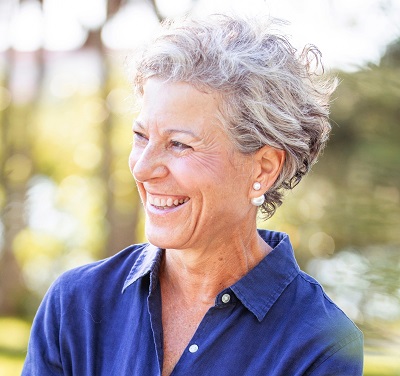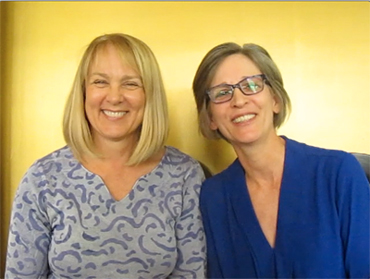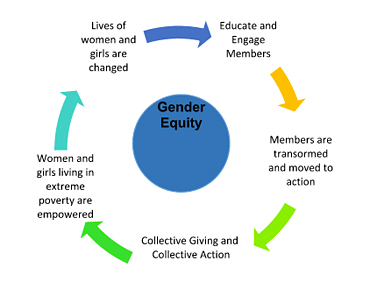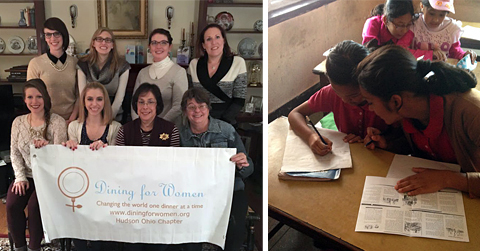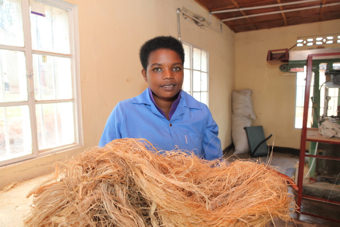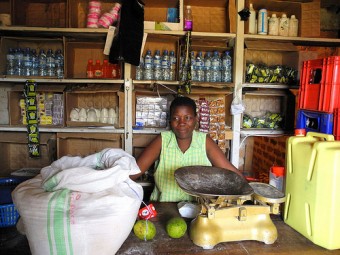Dining for Women is pleased to announce its grant program for the first six months of 2015, which will provide more than $331,000 to grassroots program from Jordan to Haiti. The programs will directly benefit more than 13,500 women and girls, and countless more indirectly.
The programs work toward improved health, increased educational opportunities, training of healthcare workers to return to rural villages and medical care.
“This group of grantees all offer something new to Dining for Women,” notes Dr. Veena Khandke, interim program director. “These programs are innovative and collaborative,” she says, noting that they represent a strong cross-section of need from aiding Middle Eastern refugees to inventing a completely new and renewable process to make affordable sanitary pads for girls in Rwanda.
The featured programs are:
- The Collateral Repair Project in Amman, Jordan, which focuses on providing support for women and families who have been displaced by war and unrest in the region. The program will provide therapy and wellness programs, health and nutrition support, leadership training to rebuild lost self-esteem and exposure to women-led organizations in Jordan.
- Sustainable Health Enterprises (SHE) based in Rwanda will provide critical health education to young girls, along with manufacturing and distributing affordable go! Pads, made from a renewable source – banana fibers – and offering education and menstrual hygiene. Due to cultural norms and misinformation, girls are often excluded from school and social activities during menstruation. This program aims to break the silence around menstrual taboos in schools.
- In Senegal, the Grandmother Project develops training and education programs to encourage grandmothers to be agents of change in their communities. The leaders program will include the development of reusable training materials and workshops as well as a series of “Under the tree” pilot training programs.
- Cervical cancer is a major women’s health issue in Haiti where the Mama Baby Haiti program is launch a well woman project. The project will include screenings and treatment for cervical cancer as well as education on sexual health, risky behavior and sexually transmitted diseases.
- Open fire cooking, which is the norm in Malawi, is a dangerous practice. Improper venting of fumes can cause serious respiratory illness for women and their families. Well-vented open cook stoves, such as a Changu Changu Moto stove provided by Ripple Africa can save lives as well as preserve the critical forests.
- Women artisans in Rwanda have been benefitting from the entrepreneurial programs of Indego Africa. But a new program – the Leadership Academy — will offer women advanced business training and the opportunity to apply classroom learning in actual situations by managing cooperative programs.
In addition to these six programs, Dining for Women has also granted $75,000 to five programs we have selected for multi-year funding. They are: The BOMA Project, a program supporting micro-enterprises in Kenya; Matrichaya, which offers vocational training, health education, medical aid and literacy programs in Ranchi, India; Friendship Bridgeis a microloan program that works with women in Guatemala to assist them in starting, expanding or diversifying their business; Village Enterprises in Uganda works in partnership with the Jane Goodall Center to provide women entrepreneurs with business and conservation and work toward the goal of sustainable livelihoods and environmental awareness; and PINCC, a medical treatment and training program in India that treats cervical cancer, trains and educates professional staff and women on prevention and treatment.

